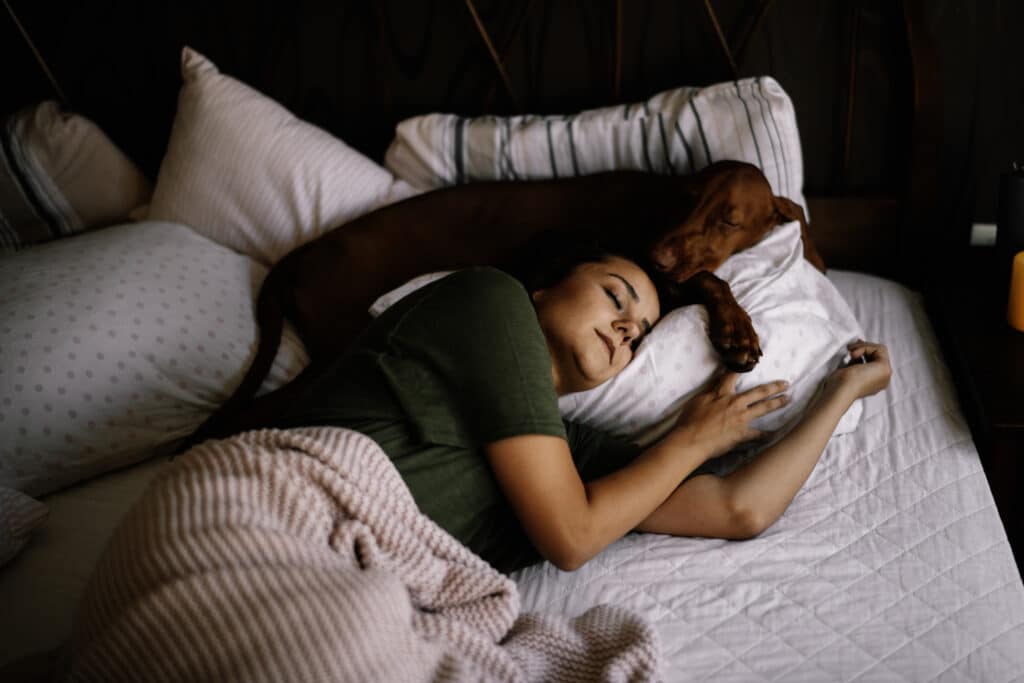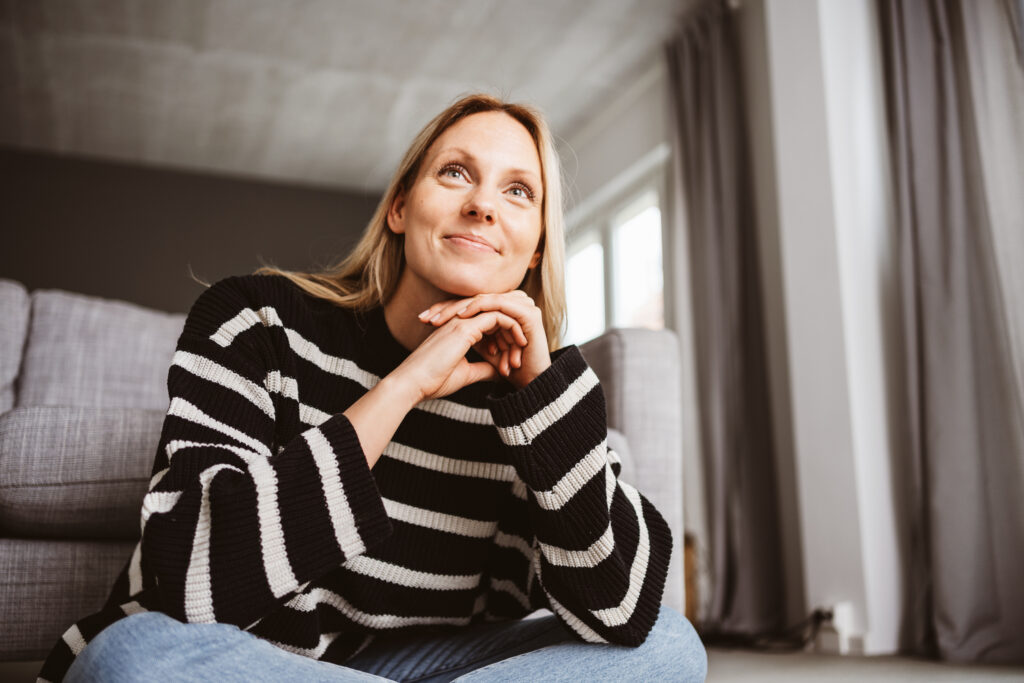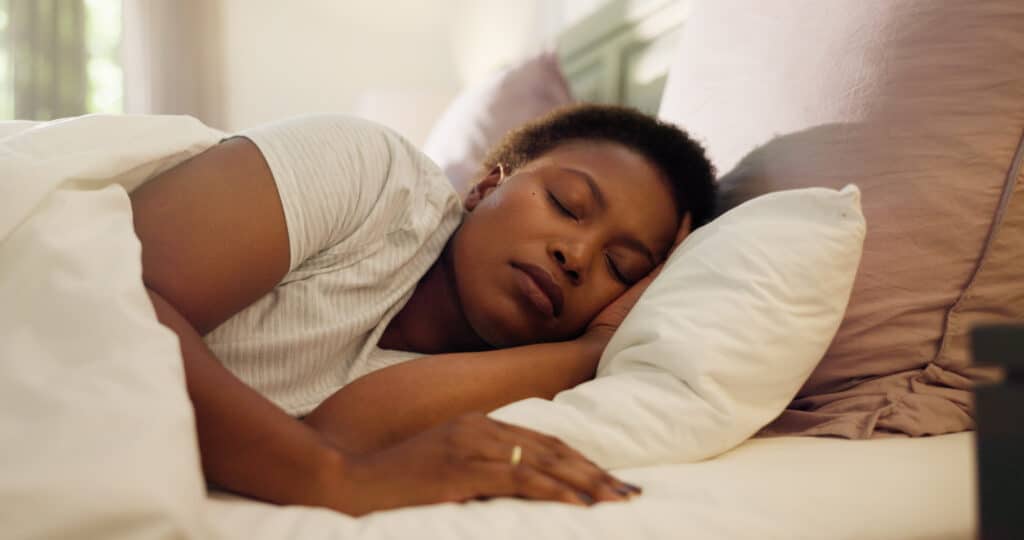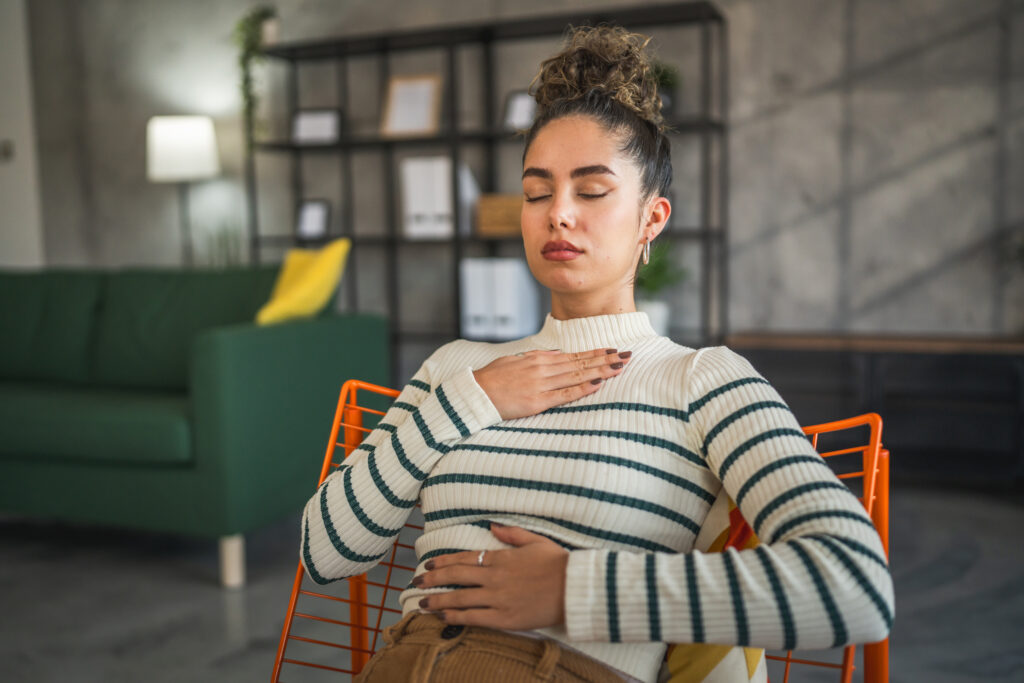We need sleep to feel our best. And yet, trouble sleeping is an issue for most people with PTSD. Traumatic stress can impact sleep in different ways. It can cause:
- Insomnia, or trouble falling asleep and staying asleep
- Nightmares, which may or may not be about the traumatic event
- Sudden leg movements, which can wake you up
- A type of disordered breathing called obstructive sleep apnea
- Talking in your sleep
As well as being a symptom, some experts believe that sleep problems may make you more likely to develop PTSD. And when you have PTSD symptoms already, poor sleep can make them worse.
What to do about it? There are many things you can do to help with sleep struggles of all kinds. These techniques are called “sleep hygiene.” You can think of them as ways of cleaning up your sleep habits.
Optimize your space for sleeping
For ideal sleep, the mantra is cool, dark, and quiet. A fan or white noise machine can help if you’re bothered by noises, or if you feel uneasy with silence.
Stick to a routine
Kids aren’t the only ones who need a consistent bedtime. Going to bed close to the same time every night helps your body know when it’s time for sleep. To wind down, try a relaxing activity first. You might take a shower, listen to music, read, or even match socks. Avoid anything that gets your mind racing or brings up stressful thoughts.
Steer clear of bright lights at night
Light is a cue your body uses to know when it’s time to go to sleep and when it’s time to wake up. Avoiding bright lights close to bedtime, including the light from electronic screens, may help with sleep.
Don’t fight sleep in bed
The irony about struggling to sleep when you want to, is it can turn going to bed into a source of stress. To counteract that, try to get in bed when you’re already feeling drowsy. If you still can’t sleep after 20 minutes or so, get up and move to another space. Do a quiet, screen-free activity until you start to feel sleepy, then try again.
Cut down on caffeine and alcohol
You probably know that caffeine too close to bed can keep you up. Alcohol can also lead to lower-quality sleep.
Get treatment for your PTSD symptoms
If difficulty sleeping stems from PTSD, treating your trauma symptoms may be the best way to improve your sleep. A medication-free treatment like Freespira can lessen symptoms in just a few weeks so you feel better day and night.
See if Freespira is right for you. Take our online symptom assessment.



